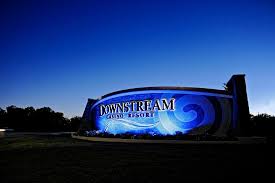Gaming opponents in Kansas were dealt a major blow on Tuesday after a federal appeals court ruled in favour of an attempt by the Quapaw Tribe of Oklahoma to expand its casino operations onto neighbouring ancestral territory in the state. The federally-recognized tribe operates the Downstream Casino Resort in north-eastern Oklahoma but the parking lot and ancillary facilities for the development sit on 124 acres of adjacent Kansas land the Quapaw Tribe purchased in 2006 and 2007.
Following a tribal request, the Bureau of Indian Affairs placed the acquired land into trust five years later before the National Indian Gaming Commission ruled in a 2014 letter that the parcel, which is often, referred to as the “Quapaw Strip”, satisfied the “last recognized reservation” exception of the Indian Gaming Regulatory Act and could be utilized for gaming. The next year saw the Quapaw Tribe unveil a plan to spend upwards of $15 million in order to expand the casino floor of the Ottawa County facility onto this trust land, which prompted the state of Kansas to file a lawsuit after refusing to negotiate a Class III gaming compact and asserting sovereign immunity.
In its 18-page ruling in the Kansas v Zinke case, the United States Court of Appeals for the Tenth Circuit found that the state could not challenge the “last recognized reservation” exception as the decision was merely “advisory” in nature and did not bind the federal government any particular position.
“In short, the letter merely expresses an advisory [and] non-binding opinion without any legal effect on the status quo ante,” read the ruling from the three-judge panel authored by Judge Carlos Lucero. The National Indian Gaming Commission generally prohibits gaming on lands purchased after the Indian Gaming Regulatory Act became law in 1988 and this is thought to be the first time a tribe has been granted such permission under the “last recognized reservation” exception.
However, it may be some time before the Quapaw Tribe, which additionally operates the nearby Quapaw Casino in Oklahoma, can begin gaming operations on the Kansas land as the federal judges moreover ruled that the tribe is required to first negotiate a Class III gaming compact with Topeka and have this agreement blessed by the United States Department of the Interior.
“Nor will the letter inevitably lead to Class III gaming on the Kansas land,” read the ruling written by Lucero. “The tribe has yet to satisfy the two preconditions necessary for such gaming to occur; a gaming compact with the state and approval of that compact by the Secretary of the Interior.”
















